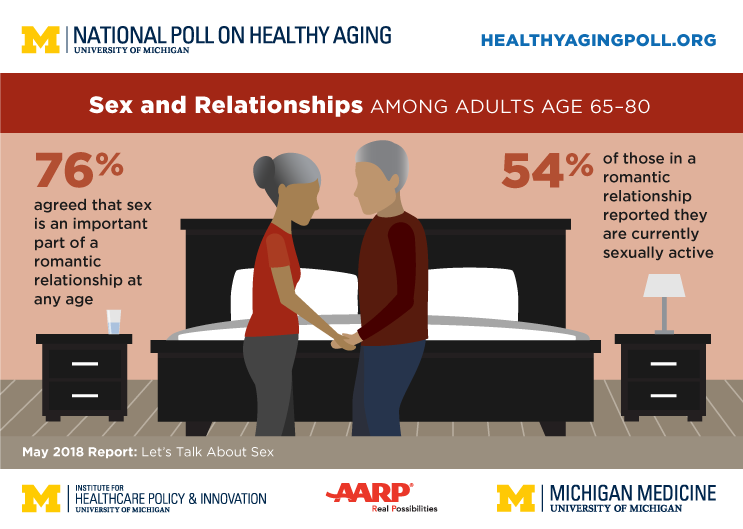Posts Tagged ‘sex research’
Senior Sex Research: Here’s what I’d like to know
 7/31/19: I wrote this post in January 2017. I’m bringing it to the top again because this research is still sorely needed, and I don’t see the issues changing. Please feel free to contribute your thoughts!
7/31/19: I wrote this post in January 2017. I’m bringing it to the top again because this research is still sorely needed, and I don’t see the issues changing. Please feel free to contribute your thoughts!
I’m not looking for statistics, such as how many of us are having sex. Doesn’t that depend on (a) how the researchers and the subjects define “having sex” and (b) whether we have what we need (partner, privacy, physical ability, emotional intimacy) to have the kind of sex we want?
I’d like to see research into how we think about sex now, what determines quality of sex, what’s missing in our sexual worlds, what we’re learning about sex and about ourselves during our later years.
So while we’re waiting for the right research to be done, here are some questions for you if you’re over 50, 60, 70 and beyond:
1. If a researcher asked if you are “sexually active,” how would you answer? What would you mean by that answer?
2. How has the definition of “what is sex?” changed or evolved for you over time? What did it used to mean? What does it mean now? What made your definition change (if it changed)?
3. If you could be in any kind of sexual relationship you wanted, what would it be? Never mind how you might be judged — what would be ideal for the real you, maybe the secret you?
4. What would you like to tell our society about sex and aging?
I asked the good folks who follow my Naked at Our Age Facebook page, “If researchers wandered over here to learn what studies we’d like to see conducted about sex and aging, what would you suggest?” Here are some of their suggestions:
- “Studies toward normalizing serial monogamous relationships. As we age, the chances are that we will lose our partner. When that happens, it should be easier to establish new relationships without feeling that we are betraying the partner who has died. We don’t have to give up our former love in order to love another person. I think we can keep the truth and warmth of the past love, have an additional love or two, without feeling that we have violated the truth of the first.”
- “I’d love to see more of an in-depth study on how illness/ disability/ aging affect our sexuality and sex lives.”
- “How about a serious, non-judgmental look at the multi-faceted, complicated reasons for diminished libido as we age? (Hormonal, psychological, physiological.) Why it affects some and not others and methods – again multi-faceted – for those who indeed want to revitalize their libido.”
- “Can ingrained sexual scripts be changed enough so that new ways of ‘having sex’ aren’t seen as less satisfying than former ways?”
- “What is the most effective way to help older adults get on board with safer sex?”
- “The best ways to empower older adults to set, communicate, and respect sexual boundaries.”
- “I’m fascinated by what seems to be a growing popularity of consensual non-monogamy, open marriages, and open relationships in the over 50 crowd. Is this just anecdotal or have others noticed it too?”
- “Re-defining what ‘satisfying sex’ is to align better with how bodies change with age. This could go hand-in-hand with the ever-popular yet hardly discussed question, ‘What is sex?’ It can be so many things.”
- “Seniors discovering and accepting polyamory.”
I’m eager to hear from you, whether you’d like to answer one of my questions or add to the list of what researchers should study. Please post a comment and include your real age.
Let’s keep talking. The conversation has just begun!
P.S. When I invite you to comment, I’m inviting you — real people — to share your personal views. I’m not inviting ads for escort services, ED “cures,” cam sites, or other commercial enterprises. I shouldn’t have to say any of this, but the number of comments I have to delete indicates otherwise. [I know, the trolls and robots aren’t even reading this, but I have to try.]
“Sex after 65” in the news

How would you interpret the question, “Are you currently sexually active?” if a researcher asked you. (Please answer by posting a comment.)
Do people have sex after 60? How about after 65?
I’m often complaining that little is known about our age group’s sexual behavior and beliefs because no one asks us. So I was delighted to learn that researchers at the University of Michigan surveyed 1,002 people between 65 and 80 about their sex lives as part of the National Poll on Healthy Aging 2018. The report, titled “Sex after 65. Health, gender differences, and lack of communication,” was released on May 3, 2018.
Here are some of the findings:
- 40 percent of people between the ages of 65 and 80 are sexually active.
- 54 percent of those with a partner are sexually active.
- Nearly 2/3 of older adults say they’re interested in sex.
- More than 50% say sex is important to their quality of life.
- 73 percent said they are satisfied with their current sex life.
- 18 percent of older men and 3 percent of older women say they’ve taken medications or supplements to improve sexual function in the past two years.
- Only 17 percent of older adults said they have talked with their doctor or other health care provider about sexual health in the past two years.
- Those between the ages of 65 and 70 were nearly twice as likely as those in their late 70s to be sexually active.
- 50% of men but just 12 percent of women aged 65 to 80 said they were extremely or very interested in sex.
As I read this, I kept asking myself how they defined sex or sexually active or sex lives. Did sex with a vibrator, a partner’s hand or mouth, or one’s own hand count as sexually active or having a sex life? (I say yes.) I asked Erica Solway, Ph.D., co-associate director of the poll, who told me,
We did not define sex because we wanted the response to be based on the individual’s definition of what constitutes sex (or their sex life or being sexually active) from their own perspective. We felt this was important, but it does mean that we do not have information on what activities people were referring to when they reported they were or were not sexually active. It’s possible that two people engaged in the same activities may have responded to the questions differently based on their personal definition.
I agree that our own definition of what constitutes sex is important in a study like this — I applaud this, in fact. But I would have liked that clearer in the poll questions. For example, “Are you currently sexually active?” could have been worded, “Do you engage in sexual activity?” That may sound almost the same, but I have a hunch that many people would interpret the first question as “Do you have sex with a partner?” and the second as “Do you have sex, either with a partner or with yourself?” Asking the question differently would have raised the percentage of people who answered yes to that question, seems to me.

What do you think, readers? Am I off base? How would you interpret the question, “Are you currently sexually active?” (Please answer in the comments section.)
The wording of the questions is a minor quibble, though, because I understand that the poll was multiple-choice, not essay questions, and answered online, not via an interview. In the end, I’m happy that someone’s asking.
This report was all over the news. Here are some of the headlines:
- CNN: “Seniors, new poll says, are still sexy after all these years“
- USA Today: “Seniors and sex: Many adults ages 65-80 are having sex (and most are pretty satisfied)“
- US News: “Study: Many Adults Ages 65 to 80 Continue to Be Sexually Active“
- The Guardian: “Sex a key part of life for people over 65, study says“
- Bustle: “The Sex Lives Of People Over 65 Are Thriving, Study Finds, So There’s Finally Something to Look Forward To“
As glad as I was to see this study in the news, I couldn’t help wondering why the [younger] public is so surprised that we seniors have sex on our minds and in our beds. Why would we give up something so pleasurable? Do they expect that on some predetermined birthday, we’ll just say, “Sex? Been there, done that, moving on. Now help me blow out all these candles.”
Thank you, University of Michigan Institute for Healthcare Policy and Innovation, for conducting the study, and AARP and Michigan Medicine, U-M’s academic medical center, for sponsoring it. Let’s keep talking.
“Tell Me What You Want” by Justin Lehmiller: book review
Tell Me What You Want:The Science of Sexual Desire and How It Can Help You Improve Your Sex Life by Justin Lehmiller, Ph.D. is the book we’ve all needed, even if we didn’t know it. We all have sexual fantasies, but we don’t usually share them with others, even our own partners. Many of us agonize about what our fantasies say about us, or we struggle (unsuccessfully) to repress them.
What Is a Sexual Fantasy?
A sexual fantasy is any mental picture that comes to mind while you’re awake that ultimately turns you on … Simply put, a fantasy is a conscious thought that makes you feel all hot and bothered, and maybe gets some blood flowing to your genitals, too.
In this barrier-smashing book, sex researcher Lehmiller surveyed more than 4,000 Americans, ages 18 to 87, who answered 350 detailed questions about themselves, their sex lives, and their sex fantasies. The result is a solidly researched book that answers questions you probably have, such as these:
- How common is my sex fantasy?
- Does my fantasy mean that I’m a bad person?
- What sorts of people have fantasies like mine?
- Should I tell my partner about my fantasy?
- What should I consider before acting out my fantasy?
- What do other people fantasize about?
- What are the most common fantasies?
 My biggest problem reviewing Tell Me What You Want is that it’s so good that I don’t know how to narrow down what I tell you about it. Look at all these Post-Its! Instead of summarizing or interpreting Lehmiller’s points, here are some of them in his own words:
My biggest problem reviewing Tell Me What You Want is that it’s so good that I don’t know how to narrow down what I tell you about it. Look at all these Post-Its! Instead of summarizing or interpreting Lehmiller’s points, here are some of them in his own words:
- Multipartner Sex: The results of my investigation reveal that the single most popular sexual fantasy among Americans today is — drum roll, please — group sex … perhaps the most normal thing there is to fantasize about because almost everyone has been turned on by the thought of it.
- Men and women are not polar opposites when it comes to their sexual psychology … most of the things that men fantasize about, women fantasize about as well.
- Our sexual fantasies appear to be carefully designed to meet our psychological needs — and because those needs change and evolve over our life span, it seems that our sexual fantasies naturally adjust in order to accommodate them.
- There’s a world of difference when it comes to what turns someone on at [different] life stages … older adults — especially those in long-term, monogamous relationships — are more likely to crave something fresh and new … like an orgy or an open relationship.
- According to my survey data, if there’s one specific person who’s likely to appear in your sexual fantasies, it’s your current romantic partner.
- When we feel ashamed or guilty about what turns us on, it can potentially lead to sexual performance difficulties … the more negative emotions [survey participants] reported — things like guilt, shame, embarrassment, fear, anxiety, and disgust — the more sexual problems they had.
- When the novelty of a new relationship has worn off, adding new and exciting elements to your sex life by acting on your fantasies can potentially prevent passion from subsiding and allow it to keep burning.
 There’s more, so much more. Whether you’re interested in the world of sex research, or you just want to understand your own sex fantasies better, or you’re looking for tips for communicating better with your partner, I know you’ll enjoy and learn from Tell Me What You Want:The Science of Sexual Desire and How It Can Help You Improve Your Sex Life, as I did.
There’s more, so much more. Whether you’re interested in the world of sex research, or you just want to understand your own sex fantasies better, or you’re looking for tips for communicating better with your partner, I know you’ll enjoy and learn from Tell Me What You Want:The Science of Sexual Desire and How It Can Help You Improve Your Sex Life, as I did.
Why Don’t They Ask Us?
I’m sure you’ve seen news stories that announce how often seniors are having sex or how much we enjoy the sex we’re having. A problem I have with many of the studies about sex and aging is that they often don’t define “having sex.”
Does “having sex” mean partnered sex only? (Solo sex is real sex!) Heterosexual intercourse only? Orgasms? Are they asking whether we’re having the same kind of sex we used to? What if we’re enjoying new ways of having sex?
 If we give a partner an orgasm and the partner gives us an orgasm, but there’s no PIV (penis in vagina), did we have sex? I say yes. If we haven’t had partner sex for a year but we give ourselves weekly orgasms with our favorite vibrator, are we sexually active? I say yes.
If we give a partner an orgasm and the partner gives us an orgasm, but there’s no PIV (penis in vagina), did we have sex? I say yes. If we haven’t had partner sex for a year but we give ourselves weekly orgasms with our favorite vibrator, are we sexually active? I say yes.
I don’t think we know much about what kind of sex seniors are having, once we broaden the definition of what sex is. My definition: Sex is any activity, solo or partnered, that gives us sexual pleasure, arousal, orgasm — and maybe, but not always, all three. Does that cover the kind of sex you’re having? Help me finesse this definition.
Let’s discuss this. How would you define sex at our age? And how has your definition of sex changed over the decades? If you’re willing to share your definition, or you have a comment on this topic, I invite you to post to the comments section. Your turn!




